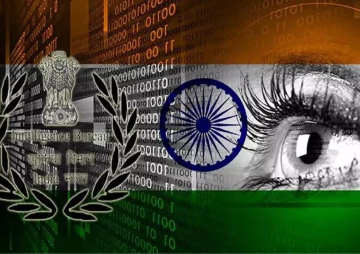The army has hinted at fresh elections in 2010, with predictions of October 10 being the chosen day for polling

The Myanmarese junta has promised elections this year, but it remains to be seen if the political Opposition is in a fit shape to do creditably as in the last polls, held in 1990, Lt Col. C S Kuppuswamy (retd) said. He was speaking on “Army and the Upcoming Elections in Myanmar”: at an ORF-Chennai Interaction on 6 February 2010.
Tracing the history of the nation, he recalled how Burma was a part of the British India till 1937, when it became a separate colony of the British Empire. This colony was a multi-ethnic society with the ethic Burmese constituting the single largest group. It was predominantly a feudal agrarian society, with the bulk of the ‘middle-class jobs’ being filled by Indian immigrants, particularly Tamils. The British colonial era left behind an ethnic problem in Burma, which has resulted in numerous insurgency groups fighting against the State.
The Second World War era saw significant political developments with the Amy joining hands with the Japanese against the British, and later allying with the British to drive out the Japanese. During this period, Gen Aung San (father of Aung San Suu Kyi) formed the Anti-Fascist People’s Freedom League (AFPFL). The AFPFL was an umbrella organisation that united all the ethnic groups in Burma, leading to Independence from British rulers on 4 January 1948.
Aung San was assassinated six months before Independence, resulting in a political vacuum. The post-independence period witnessed a civilian rule that was unstable. The scenario further degraded with infighting among the various political fractions. The army (Tatmadwa) was invited to administer the State during this turbulent phase. The 1960 election further destabilised the polity, and the Army staged a coup in 1962 and took over the reigns of power. Since then, the army has slowly seeped into every aspect of the State and military personnel are even hold membership in various political parties. Today, every aspect of life is under the watchful eye of the army.
Overall, the political situation was yet more or less stable with very little happening. In 1988, steps were taken to democratise the nation with leading up to elections in 1990. The National League for Democracy (NLD) of Aung San Suu Kyi won the elections by a huge margin, in alliance with some ethnic groups, polling 82 per cent of the votes and winning 392 of the total 485 in the legislature. The rival political party, backed by the junta, fared poorly. Fearing retributions from the NLD for past atrocities, the junta cancelled the election results and thereby retained power.
The fear of retribution had a logic of its own. Every change of leadership in the country has resulted in witch-hunting of the predecessor. This resulted in large-scale protest by the NLD and students’ organisations. The junta cracked down on the protestors with an iron fist. Since then Aung Sang Suu Kyi has spent most of her life in prison or in house-arrest. The junta has also strangulated political activity of every kind. This was evident in the 2008 protest, led by the Buddhist monks who faced the wrath of the army.
The army has hinted at fresh elections in 2010, with predictions of 10 October being the chosen day for polling. Astrology, it is said, will have a lot to do with the final choice of polling day. Though the NLD led by Aung San Suu Kyi is still the most prominent opposition political party, the party is yet to finalise electoral alliance with various ethnic groups. The NLD offices outside the capital city of Yangon are also in a shamble following repeated police action. All this could impact on the party’s performance in the elections, whenever held.
More importantly, the NLD is also caught between the horns of a dilemma as far as their decision to contest the polls goes. The party has put forth a few conditions for participating in the poll process. The demands include freedom for all political prisoners, international observers to monitor the poll and a review of the 2008 Constitution, which has conferred tremendous powers on the President. These powers include authority for the President to nominate all members of the legislature, whether or not they are elected by the people. The same holds for the office of the Chief Minister in the States. The Constitution also empowers the President to have men of his choice for Ministers of Defence, Security and Border Security. Over and above all this, a fourth of the total strength of the legislature has been earmarked for the army. The law also confers immunity on the President and his family members for all past atrocities.
The Myanmar army is one of the best in the world for counter-insurgency measures, what with ethnic minorities of various hues accounting for 40 per cent of the population, and spread over 50 per cent of the territory. To the credit of the Government, it should be said that there has been considerable progress in this front with numerous ceasefire accords having been signed with various insurgent groups. As many as 17 ceasefire agreements have been signed. Further delay in the peace process is attributed to the Government’s insistence that the militants should surrender their arms and become a part of the army. The Government has welcomed the notion of these insurgent groups forming political parties and entering the mainstream.
Points that were made during the discussion:
• There is no free and independent media in Myanmar, to be able to report on the claims by and charges against the junta.
• Corruption is a big problem but people are afraid of preferring complaints, fearing repercussions.
• The growing influence of drug trade can be gauged from the increasing acreage brought under opium cultivation.
• The period 1962-88 was the worst in post-independence Burma. Politically and economically, the period witnessed a lot of difficulties with no real progress on either fronts.
• Students and youth have played an active part in national politics in the past. They were the pivotal to the public protests, led by Buddhist monks, in1988 and 2008. But their role in the upcoming elections is seen to be limited.
• The Chinese have invested heavily in Myanmar but do not have any significant military presence, apart from being a weapons-supplier for the army. There is no need for India to be overly concerned about China wanting to set up a naval base in the country. All ports in Myanmar are river-water ports, which is not suited for naval activities of the kind that China may want to have. The Chinese would have known as much.
• The junta may be following the ‘Indonesian model’ of slow and controlled transfer of power to elected civilian authorities. It could be a long drawn-out process and could take decades to complete.
• People do not hate the army but have a strong dislike for the way the regime factions.
• India, China and ASEAN are key players on the affairs of Myanmar. Western nations do not enjoy the level of influence that India, China and the ASEAN have on the Yangon Government. The same can be said of Myanmarese exiles in the West, who are willing to support and fund political parties back home.
• Myanmar and North Korea have military cooperation and close military ties. The two have also shared nuclear technology but then Russia, and not China, would be the primary source for nuclear technology in the future, if there is any need.
• India is an importer of pulses and other agriculture produce from Myanmar. The. Indian presence is not as prominent when compared to that of China. Myanmar is depended on China for almost everything. This situation is unlikely to change for the time being.
• The American policy on Myanmar has not seen any fundamental change but then ASEAN is trying to influence it as sanctions have not had the desired effect.
The report is prepared by Sripathi Narayanan
Department of Defence and Strategic Studies, University of Madras
The views expressed above belong to the author(s). ORF research and analyses now available on Telegram! Click here to access our curated content — blogs, longforms and interviews.




 PREV
PREV

